A school for simplicity and self-reliance
Kenneth and Angela Kortemeier offer hand-tool woodworking classes modeled after the Country Workshops of Drew Langsner.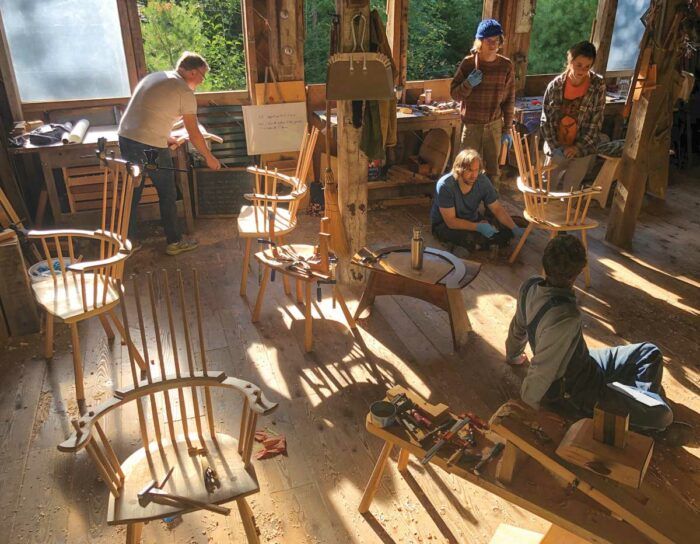
Synopsis: Far off the grid in Bristol, Maine, this husband-and-wife team offers hand-tool woodworking classes modeled after the Country Workshops of Drew Langsner, which closed its doors in 2017.
If you were lucky enough over the past four decades to take a hand-tool woodworking class at Country Workshops on a remote hilltop farm in rural North Carolina, joining the happy band of students making shavings with Drew Langsner and sharing the meals Louise Langsner made from her garden, you were doubtless sad to hear that the school closed its doors in 2017.
If you missed out on that unforgettable experience, however, there’s good news for you farther up the coast. Off the grid in Bristol, Maine, husband-and-wife team Kenneth and Angela Kortemeier have picked up the Langsner mantle and launched a heartfelt school of their own, adding an extra measure of self-reliance and simplicity.
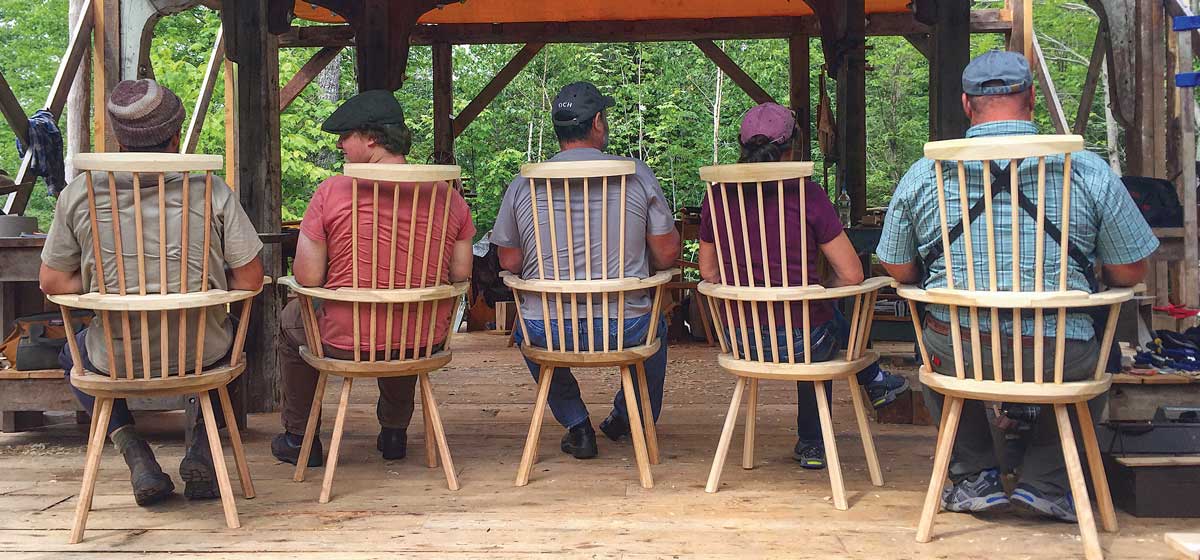
Following the Langsner model, Kenneth teaches most of the classes at The Maine Coast Craft School, hewing closely to the Country Workshops curriculum, while Angela handles everything else, including tool sales, hospitality, the website, photography, and the big picture.
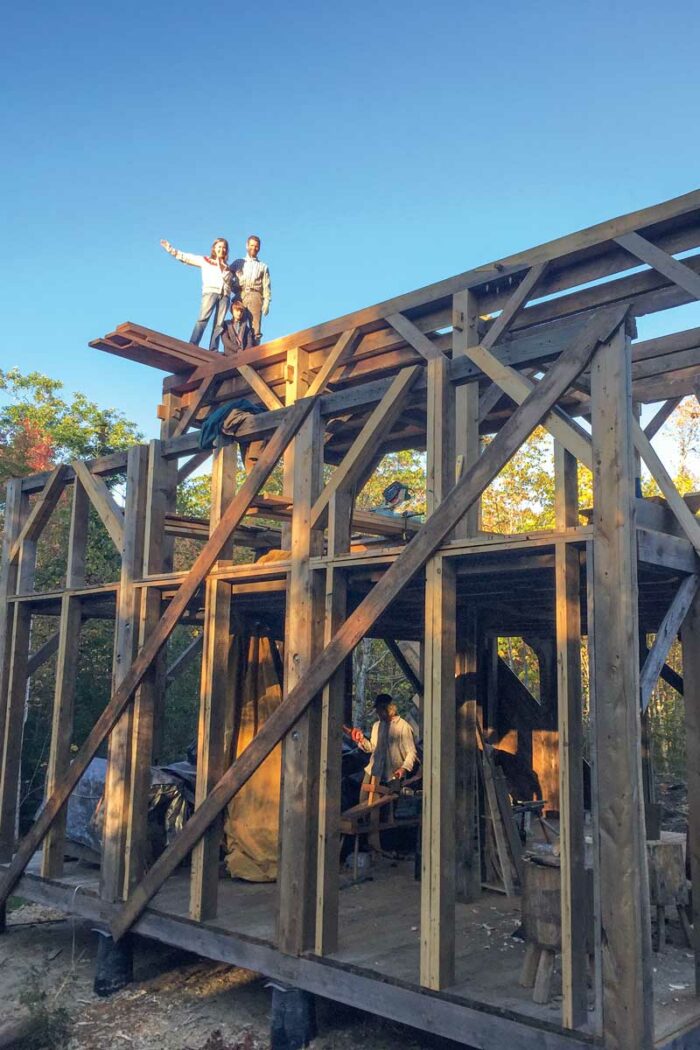 Offering summer classes only, to just four students and one work-study intern at a time, the Kortemeiers plan to keep the school at its current “human scale,” which fosters the close connections they treasured at Country Workshops. It also fits the off-the-grid life—they harvest solar power and rainwater—that is part of the school’s attraction.
Offering summer classes only, to just four students and one work-study intern at a time, the Kortemeiers plan to keep the school at its current “human scale,” which fosters the close connections they treasured at Country Workshops. It also fits the off-the-grid life—they harvest solar power and rainwater—that is part of the school’s attraction.
Accessibility is another keystone. All classes—from greenwood chairmaking, spoon carving, and timber-framing, to forging and knife-making, handsaw sharpening, spring-pole turning, and more—accommodate all skill levels, and the small class sizes let Kenneth give less-experienced students more tips and time, and experienced woodworkers extra challenges. “If people have different abilities or different ways of learning, we can cater to that,” Kenneth said. “People get to know each other in a different way in a small group, and we can get to know them better.”
The formula is working. Classes have been full from the beginning, even when the timber-frame barn had a tarp for a roof.
The idea for passing the torch from one couple to the other arose organically, too. Kenneth had interned at Country Workshops in the 1990s, exchanging work on the farm for classes in greenwood chairmaking with Drew Langsner and John Brown. (He later apprenticed with Brown in Wales, learning the Welsh stick chair.) A career in hand-tool woodworking followed, including 10 years teaching wooden boat building and chairmaking at The Carpenter’s Boat Shop in Pemaquid, Maine.
Over the years, he stayed in close touch with the Langsners, returning to the school occasionally to teach and help out.
In 2016, when the Langsners were slowing down and eying retirement, they surprised the Kortemeiers with an intriguing proposal: Would they like to move south and take over the school?
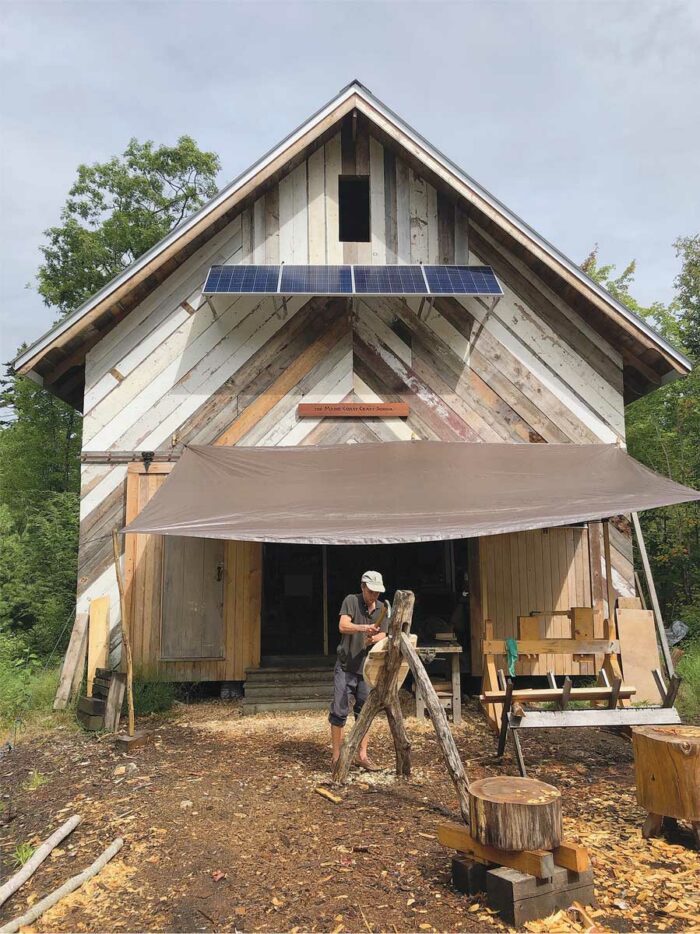
Tired of the 24‑7 demands at The Carpenter’s Boat Shop and his lack of control over the curriculum, Kenneth jumped at the chance to run a school of his own. He was the first to move to the Langsner farm, co-teaching with Drew for six months. When his family followed, however, it became apparent that the Langsners’s house and life were too intertwined with the school property for the Kortemeiers to live there too.
Already the owners of a rural homestead in Maine, the Kortemeiers realized that they could re-locate the school there, or at least start a very similar one. The Langsners loved the idea, not only giving their blessing but also donating their hand-tool sales business to the cause.
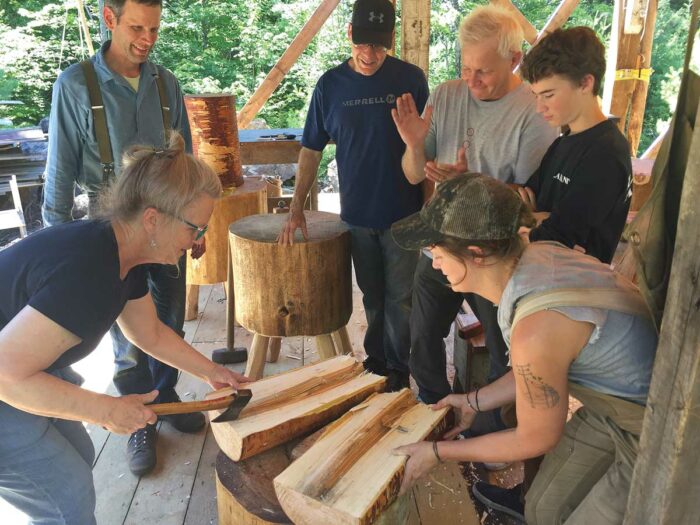 |
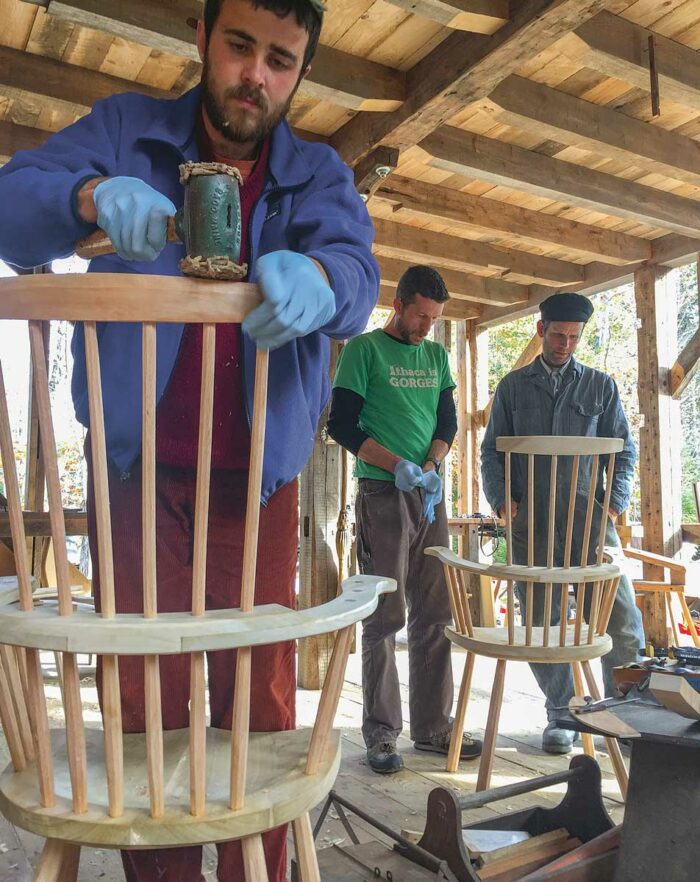 |
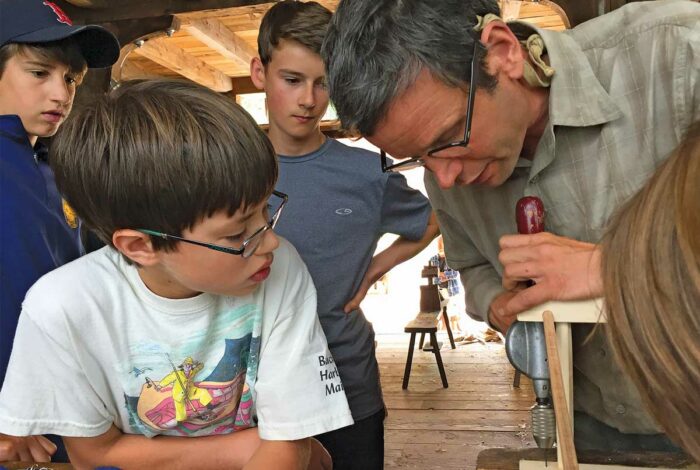 |
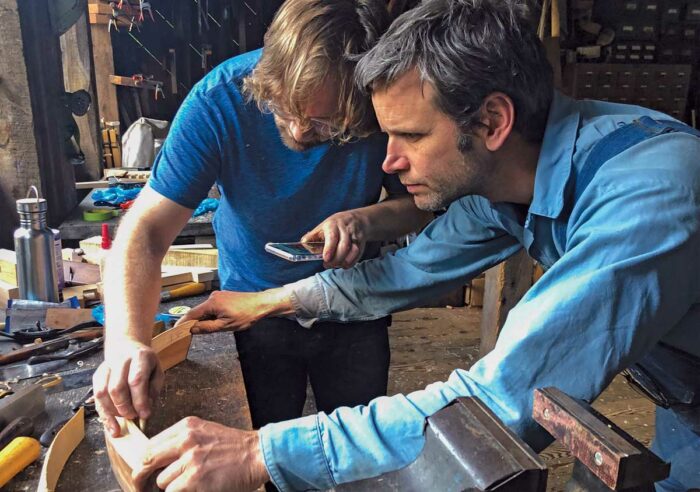 |
The sales of hand-forged tools from Sweden offered early cash flow as the Kortemeiers built the teaching barn by hand, with help from their first work-study intern, and the school offered its first summer classes the same year the Langsners retired, 2017.
While guests currently take advantage of Airbnb rentals in nearby towns, the Kortemeiers plan to add yurts onsite for students and guest instructors. A new hand-built timber frame for the office and gathering space has just been completed. “Building the school slowly lets us avoid debt and grow into this in a more organic way, feeling it out as we go,” Kenneth said. “The school reflects the vision of the classes. We’re building by hand because we can do it ourselves. We’re teaching self-sufficiency.”
The hand tools, self-reliance, and accessibility all work together at The Maine Coast Craft School. Projects are simple yet beautiful and rewarding. Legs and spindles on the rustic Windsors and ladderback chairs are shaved with a drawknife, not turned, to avoid machine work.
“Lots of people want to do woodworking but don’t want a big, dedicated power-tool workshop,” Kenneth said. “Hand-tool woodworking is small and portable and more affordable. Most folks who come here are interested in woodworking as recreation, and find the quieter approach, less dust, and lower risk much more approachable.”
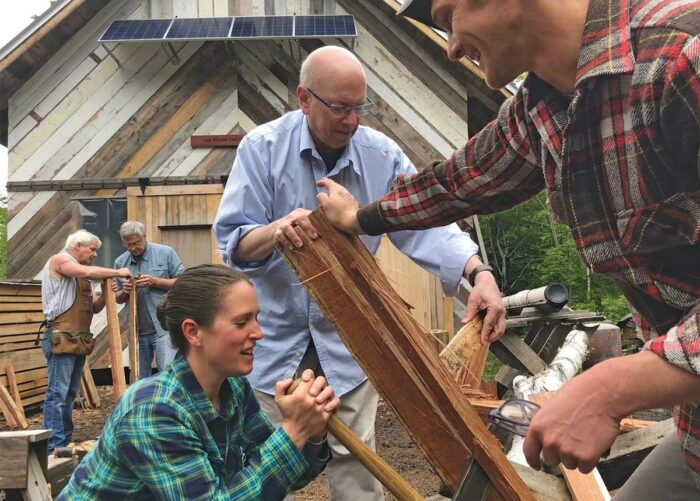 |
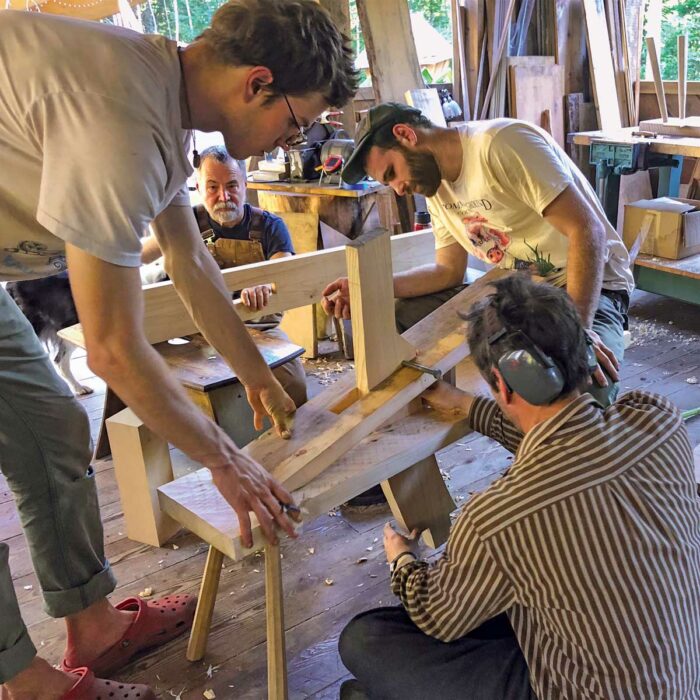 |
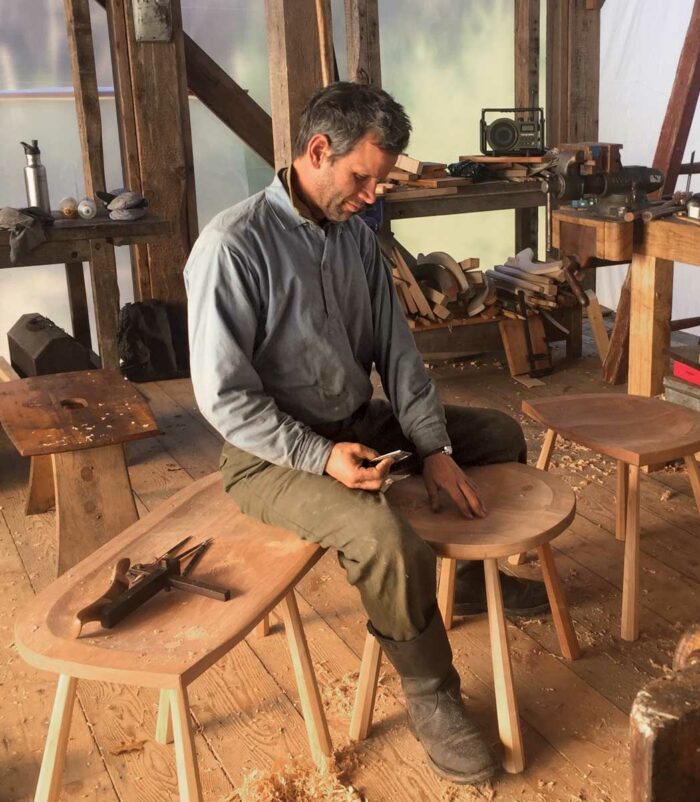 |
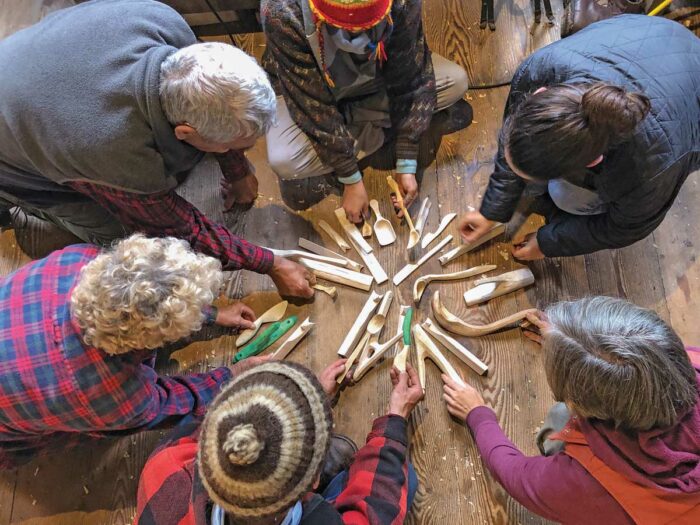 |
“We’re so happy when class is going on,” Angela said. “The workshop is so quiet—just the sounds of hand tools on wood. We feel like we’ve finally figured out what we want to do when we grow up.”
Asa Christiana is a freelance writer, editor, and woodworker in Portland, Ore.
Photos: courtesy of The Maine Coast Craft School
From Fine Woodworking #297
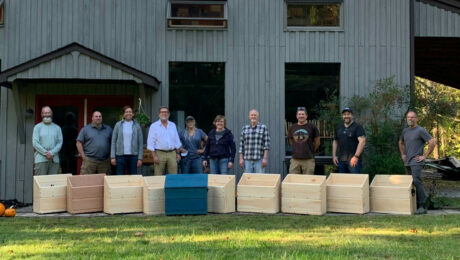 |
Keep it safe, keep it simple, and don’t forget the bourbon |
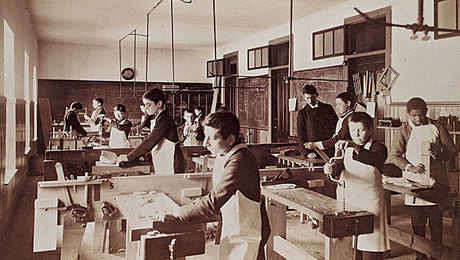 |
Stellar Training in Craftsmanship. Period. |
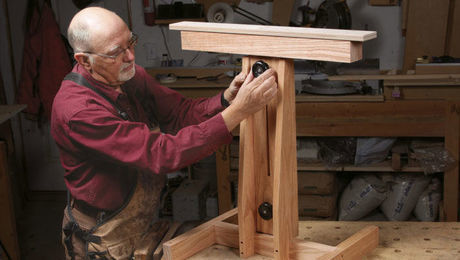 |
Benchmarks: The Education of Michael Fortune |
Fine Woodworking Recommended Products

Festool DF 500 Q-Set Domino Joiner
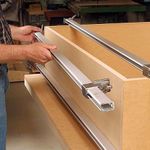
Dubuque Clamp Works Bar Clamps - 4 pack

Stanley Powerlock 16-ft. tape measure






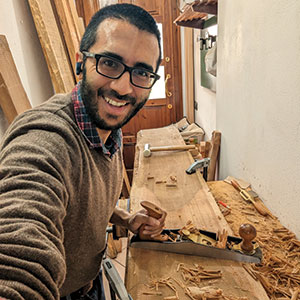






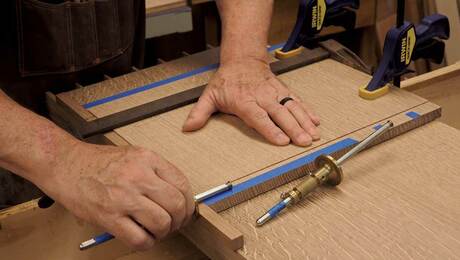








Log in or create an account to post a comment.
Sign up Log in